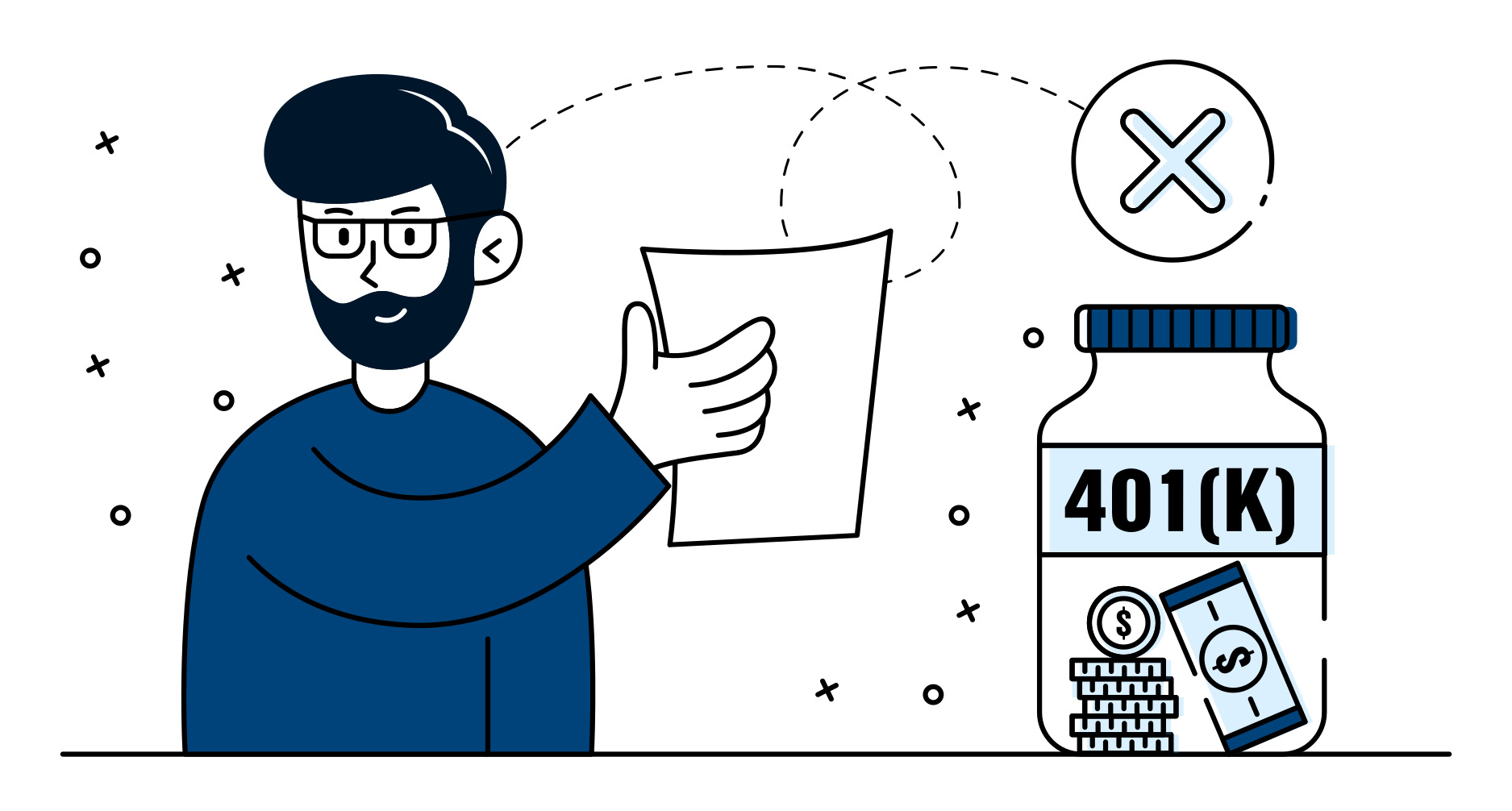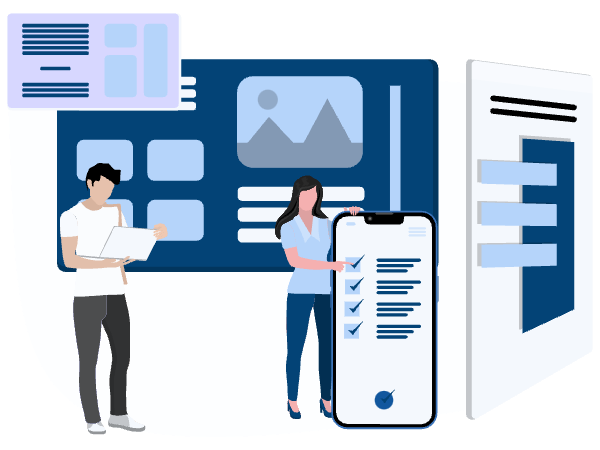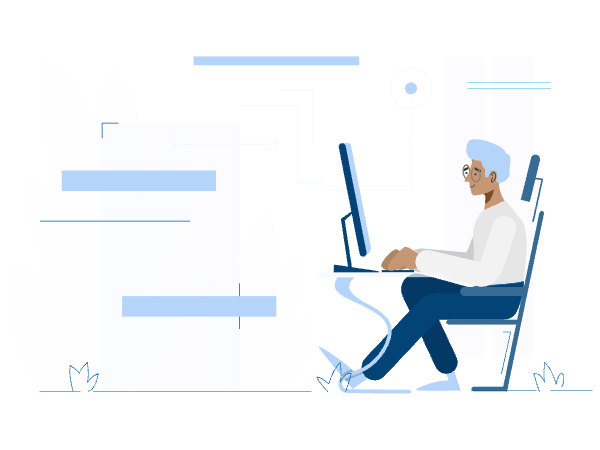It’s tempting, isn’t it?
An emergency pops up—the roof caves in, the car dies, your kid hits his head skateboarding—and you need money fast. You have $100,000 sitting in your 401(k). Why not borrow that? You can pay it back. What could possibly go wrong?
Well—a lot, actually.
While, yes, many 401(k)s allow you to borrow up to 50% of your invested money (up to $50,000), taking out a 401(k) loan can have drastic effects on your retirement planning. Before you borrow against your 401(k), here are just five drawbacks to consider.
1. You lose investment gains.
Perhaps the biggest drawback to 401(k) loans is forfeited investment growth. When you borrow money from your retirement accounts, it’s no longer earning money on interest, and, depending on market conditions at the time, the investment return you sacrifice could be hefty.
For example, if you borrow $50,000 in a year when your investment return is 8%, that means you essentially lose 8% of $50,000, or $4,000, for that year. Depending on how much you pay back (you have five years), and depending on market conditions, your opportunity cost can grow each year.
Some may claim the interest rate of a 401(k) loan essentially balances out forfeited investment gains, since what you pay on interest goes into your 401(k). But that’s a gross oversimplification. As you pay down your 401(k) loan, your interest also decreases. At a certain point, what you’re paying in interest pales in comparison to an average rate of return.
At the end of the day, taking money out of your 401(k) means that money stops working for you. You may replace what you borrowed. But you’ll never replace the compound growth you sacrificed.
2. Your contributions could suffer.
Often 401(k) providers won’t let you make additional contributions until you’ve repaid your entire 401(k) loan. That means, if it takes you five years to pay off your balance, you’ll miss five years of contributing to your retirement. Couple that with five years of missed investment growth, and you’re hit with a double whammy that could cripple your retirement savings.
Not only that but if your employer offers a 401(k) match, you’ll also forfeit the match. Employers won’t match 401(k) loan repayments (nice try), so you’ll have to wait until you’ve repaid your loan to enjoy this lucrative benefit again.
Even if your 401(k) provider did allow you to make contributions, you probably won’t be able to contribute at a high rate. Between repaying your 401(k) loan and your normal bills, you’ll have very little left for investing in a 401(k).
3. You get double taxed on 401(k) loan repayments.
Remember: when you fund your 401(k), you do so with before-tax dollars, or money that hasn’t been taxed. Your money grows tax-free, and when you withdraw it (ideally after 59½ to avoid penalties), you’ll pay taxes based on your tax bracket at the time of withdrawal.
If you take out a 401(k) loan, you’re essentially throwing all of these tax benefits out the window.
For one, you’ll repay your 401(k) loan with after-tax dollars, or money that’s been taxed (you can’t use before-tax dollars for loan repayments). The IRS will tax your income at your current tax rate and let you use whatever is left to repay your loan.
So, if you borrowed $10,000 from your 401(k), you’re not putting $10,000 back in. Technically you’re putting $10,000 plus an invisible tax fee (whatever taxes you paid after earning that $10,000).
But that’s not all. On top of this, you’ll pay taxes again when you withdraw the $10,000 in retirement. Yes—this double taxation pretty much defeats the entire purpose of having a 401(k), which is designed to help you put more toward investing and less toward taxes.
4. Changing jobs can bring unwanted tax consequences
Here’s something most people don’t consider: if you change employers, your 401(k) loan doesn’t transfer to your new employer. Whatever the cause of your departure, whether you got let go or you left voluntarily, you’ll have to repay your 401(k) loan within a specific period of time.
When do you have to pay your loan back? The deadline is typically your next federal tax return due date. So, if you left your job in August 2021, you would have until April 2022 to pay back your 401(k) loan (taking out a tax extension may give you more time to pay it back).
If you can’t pay back the loan before the tax due date, you might face some tax consequences. Basically, if you’re under 59½, the IRS will treat the remaining balance as a distribution, and you’ll have to pay a 10% early withdrawal penalty. And no—unlike the interest you were paying on the 401(k) loan, this money doesn’t go into your 401(K). This goes straight to the government, never to be seen by you again.
5. You could default on your 401(k) loan.
You have five years to pay back a 401(k) loan (more if it’s used to buy a house or taken out as a hardship withdrawal). Fail to pay back a 401(k) loan in five years, and the IRS will charge you a 10% early withdrawal penalty (waived if you’re above 59½) on the remaining balance.
Not only will you pay an early withdrawal penalty, but you’ll also totally forfeit investment gains. Just consider this: if you take out a $10,000 401(k) loan at age 40, and you only pay back $2,000, you’re now $8,000 short in your 401(k). For an investment portfolio with an 8% average annual rate of return (perfectly reasonable) and a retirement age of 65, you would sacrifice around $54,788 in potential growth. In this sense, your $10,000 loan costs you five times what you borrowed.
Should you take out a 401(k) loan?
A 401(k) loan is generally a bad idea. You’re sacrificing long-term investment growth to solve a short-term problem. While, yes, you will (hopefully) put the money you borrow back into your 401(k)—plus interest—you must stay tethered to your current employer to keep the loan open. Move employers, and you’ll have to pay the entire loan in a short period of time.
Look—if you want to build retirement wealth, you need to harness the power of compound growth, which means leaving your money invested for the long-term. Besides, why borrow against your 401(k), when there are so many safer and more affordable ways to borrow money?
One affordable way is a Stately salary-advance loan. Instead of raiding an account that should be earning you money, a salary-advance loan allows you to borrow money you’ve already earned—ahead of payday. Aside from a small origination fee (which you’d have to pay on a 401(k) loan, too), you won’t pay anything for a salary-advance loan, not even interest. Money hits your bank account within 24 hours, which can help you deal with emergencies when they happen.
If you need a much larger amount, get a low-cost employee loan. These loans help you deal with bigger emergencies without requiring you to depend on high-interest loans and credit cards. Like a 401(k) loan, you’ll pay back your loan through payroll deductions, helping you stay on track. Unlike 401(k) loans, interest rates are low, much lower than the ROI you’d sacrifice.
Let your 401(k) do its thing—help you save for retirement—and get a loan that was designed to help you get ahead—and stay there.



